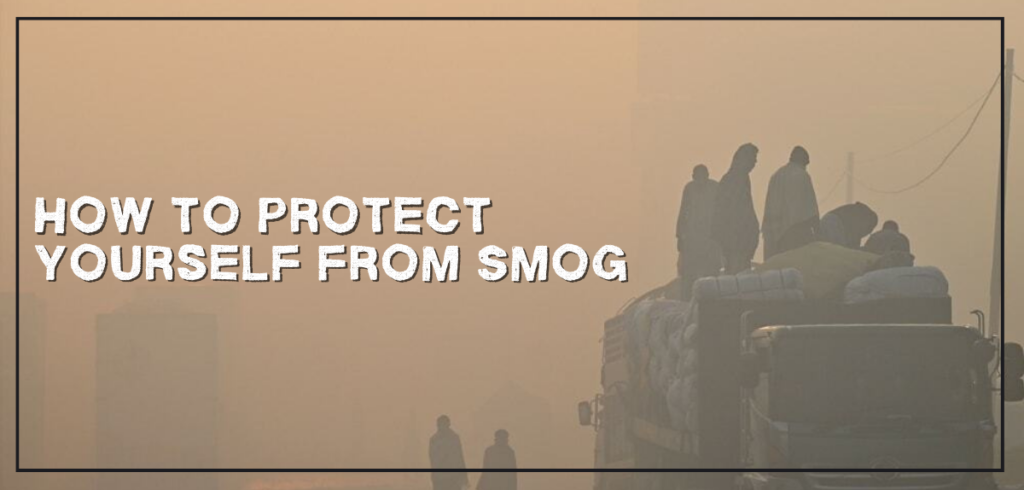Protecting yourself from smog is essential for your health, as exposure to smog can lead to various respiratory and cardiovascular problems. Smog is a combination of smoke and fog, primarily caused by air pollution, which contains harmful particles and gases. Here are some steps you can take to protect yourself from smog:
Stay Informed: Keep an eye on local air quality reports and weather forecasts. Many cities have air quality monitoring systems that provide real-time information about air pollution levels.
Limit Outdoor Activities: On days with high smog levels, especially during peak pollution hours (usually in the afternoon), it’s best to limit your outdoor activities. If possible, stay indoors.
Use Air Purifiers: Install air purifiers with HEPA filters in your home to help remove pollutants from indoor air. This can provide a safe haven from outdoor smog.
Close Windows and Doors: Keep windows and doors closed to prevent smog from entering your home or workplace. Ensure your home is well-sealed to minimize outdoor air infiltration.
Use Air Conditioners: Air conditioners with clean filters can help filter the air and keep indoor air quality better. Make sure your HVAC system is well-maintained.
Wear a Mask: When you need to be outdoors on high smog days, wear a mask designed to filter out fine particles (N95 or N99 respirators). These masks can help protect your respiratory system.
Use Public Transportation: Avoid driving on high smog days if possible, as vehicle emissions contribute to smog. Instead, use public transportation, carpool, or bike to reduce your carbon footprint.
Stay Hydrated: Staying well-hydrated helps your body remove toxins more efficiently and reduces the impact of smog on your health.
Avoid Strenuous Exercise: On days with poor air quality, avoid strenuous outdoor exercise, as it can lead to increased inhalation of pollutants. Choose indoor workouts instead.
Create a Clean Indoor Environment: Use household products with low volatile organic compounds (VOCs) and avoid smoking indoors. Proper ventilation is also important for maintaining indoor air quality.
Reduce Energy Consumption: Lower your energy consumption by turning off lights and appliances when not in use. Reducing energy use helps reduce air pollution and smog.
Plant Trees and Vegetation: Support local efforts to plant trees and green spaces, as they can help improve air quality by absorbing pollutants.
Advocate for Clean Air: Get involved in local environmental initiatives and support policies that aim to reduce air pollution and combat smog.
Remember that smog can vary in intensity and composition depending on your location and local weather conditions. By taking these precautions, you can reduce your exposure to harmful pollutants and protect your health during smoggy periods. If you have preexisting respiratory conditions, consult with a healthcare professional for specific advice on how to protect yourself from smog.

